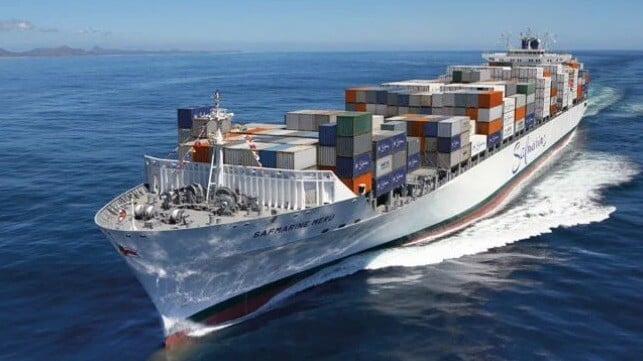South Africa Releases Plan to Launch National Shipping Company

South Africa has become the latest country to announce plans to start a national shipping line in response to the vulnerabilities that were highlighted by the supply chain disruptions during the pandemic. The Department of Transport released the first draft of legislation for the formation of the South African Shipping Company (SASCO) which could be launched as early as 2023.
The proposal builds on a government initiative outlined five years ago to overhaul South Africa’s maritime industry. The Comprehensive Maritime Transport Policy adopted in 2017 set goals for growing the maritime transport sector. It called for taking steps to establish a national shipping carrier as a strategic pillar in the revival of the maritime transport industry. The CMTP would the development of the national shipping company by giving it a priority in South Africa’s ports.
The Department of Transport highlights that South Africa generates a large amount of export cargo but has not had a national carrier since Safmarine was acquired by Maersk in 1999. Recently Africa has been the focus of new competition among the major shipping companies, including Maersk, Hapag-Lloyd, and MSC, each of which has made investments in the shipping and logistics sectors. The South African government highlights due to the reliance on foreign shipping companies the country may not be able to shield South Africa from supply chain disruption, especially during times of natural disaster or international conflict. They highlighted that South Africa is the only one of the countries in the BRICS economic alliance (Brazil, Russia, India, China, and South Africa) that does not have its own ships.
The bill outlines an aggressive plan for SASCO with the objective for the line to participate in the carriage of exports and imports as the preferred national shipping carrier. It would be overseen by a government minister who would appoint the board of directors and chief executive with the goal of building a company that would be competitive in global trade. In addition to a shipping fleet, the company would also own and operate goods clearance, stevedoring, warehousing, and other logistics infrastructure and services.
The plan calls for the company to engage in a broad range of services including container and bulk cargo, tankers, and feeder service coastal shipping. It would also maintain a bunkering operation. The bill calls for South Africa to acquire a container vessel, both a crude oil and chemical tanker, a multipurpose bulk cargo ship suited for coal and grains, and a smaller coastal shipping vessel. It would also acquire one or more bunker barges.
As part of the proposal to launch the national shipping company, the legislation would authorize the government to acquire ships or existing shipping companies during the incorporation of the South African Shipping Company. The funds for the acquisitions would come from the government as well as South Africa’s Industrial Development Corporation (IDC), but no timeline is set for the establishment of the company.

that matters most
Get the latest maritime news delivered to your inbox daily.
The Department of Transport reports that it will begin this month meeting with stakeholders to explore their interest and commitment to the shipping company.
Australia’s new government also recently announced plans to move forward with its campaign pledge to launch a state shipping company. They formed a task force that is developing the plan. Unlike South Africa, Australia still has approximately a dozen vessels operating under its flag, but the government highlighted the supply chain disruptions calling for the launch of a national shipping company. The task force is due to complete its work by mid-2023.
